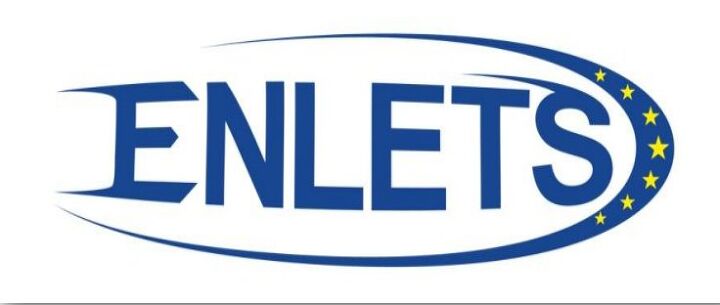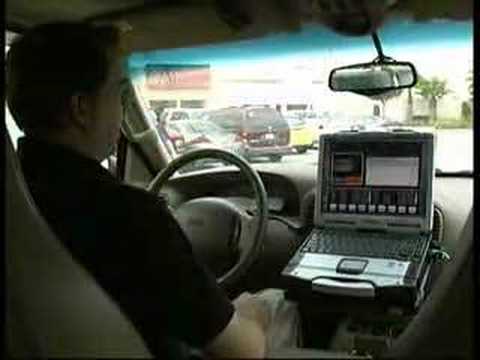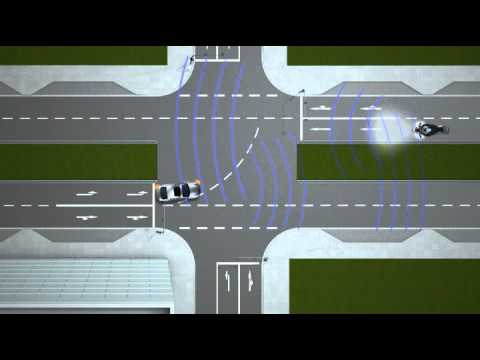#privacy
GM China Introduces Plate-Scanning App For Driver-To-Driver Texting
Ever been cut-off by a driver and wanted to let them know exactly how you feel without the need for a PIT bumper? Did you happen to see someone attractive pass you by, but didn’t want to be as obvious as Clark Griswold about it? If you’re in China, General Motors is about to make that dream come true in the creepiest way possible.
Data Privacy Concerns Rise Within Connected-Car Industry
As more vehicles come with infotainment systems mounted in the dashboard console, consumers are beginning to face the issue of losing privacy behind the driver’s seat.
Homeland Security License Plate Data Collection Plan Cancelled
A plan to create a database from collected license plate data by the Department of Homeland Security was cancelled after said plans were made known without knowledge from top officials.
Statewatch: EU Has Plans for Police to Remotely Stop Cars
A privacy advocacy group is reporting that European police forces are working on a remote stopping system to be fitted to cars at the factory that would allow authorities to deactivate any vehicle. Leaked documents reveal plans to implement the system by 2020. The idea is to eliminate the need for high speed chases or tire-spiking strips. The documents were leaked by Statewatch, a watchdog group dedicated to monitoring police powers, state surveillance and civil liberties in the EU.
The remote stopping project is said to be a priority of the European Network of Law Enforcement Technology Services (ENLETS) – a little known and somewhat secretive branch of a EU working group aimed at enhancing police cooperation across the EU.
Jim Farley Backtracks On FoMoCo Tracking Drivers, GAO: Automakers Retain GPS Data
Ford’s marketing head Jim Farley apologized on Thursday for remarks he made at the Consumer Electronics Show the day before saying that the automaker tracks their customers via their cars’ navigation systems. He said that Ford knows where and when customers drive their vehicles but doesn’t share or sell that data outside the company.
“We know everyone who breaks the law, we know when you’re doing it,” Farley said, according to a report in Business Insider. “We have GPS in your car, so we know what you’re doing. By the way, we don’t supply that data to anyone.”
After Farley’s remarks at the CES propagated, Ford Motor Company spokesman Wes Sherwood denied that the company tracked drivers’ movements. “Ford is absolutely committed to protecting our customers’ privacy. We do not track our customers. No data is transmitted from the vehicle without the customer’s express consent.”
RFID Enhanced Driver's Licenses: Big Brother Or Brighter Future?
Wired.com is reporting that the state of California has abruptly tabled legislation that might have allowed RFID (Radio Frequency Identification) chips to be embedded into the state’s drivers’ licenses. Privacy activists are hailing the suspension of this plan as a victory against government intrusion in people’s lives and believe that these chips, which are actually tiny radio transceivers that can be accessed over the open airwaves without the consent of the person carrying the document, will eventually be used to track people’s movements without their knowledge. Currently, three states, Michigan, Vermont and Washington, already have RFID chips in their licenses and are already sharing information collected by the DMV, including basic identity data and photos, with the Department of Homeland Security via a national database. Scary, right?
Brazil Mandates RFID For Cars Starting in 2014
Psst! Hey, buddy! Do you want to have a complete travel/movement database for your automobile-using populace but don’t have the scratch for a a bunch of high-tech, privacy-destroying surveillance copcars? Brazil has an idea for you!
Big Brother Is Watching, Recording, And Storing You. ACLU Alarmed
Over the recent years, Automatic License Plate Recognition (ALPR) has come into increased use. What has the American Civil Liberties Union up in arms is that the data are stored and can be used to compile behavioral profiles on innocent civilians. The state of Maryland seems to be in the lead when it comes to centralized aggregation and storage of ALPR data, “which raises significant privacy concerns,” says the ACLU.
US Supreme Court Wrestles With GPS Surveillance of Automobiles
The US Supreme Court earlier this month heard oral arguments in a case that will set the legal boundaries for police GPS surveillance of automobiles. Last year, the US Court of Appeals for the DC Circuit ruled that police were wrong to spend a month tracking the every move of Antoine Jones, who was arrested on October 24, 2005 for drug possession ( view opinion). A tracking device had been attached to Jones’s Jeep without judicial approval. The high court judges engaged in heated debate about the rights of motorists in connection with the Fourth Amendment.
Paper Treated Differently Than Smartphones in Automobile Searches
Motorists searched during a traffic stop may find their iPhone data electronically grabbed by police in ways that would not be possible or acceptable with written material. Some police departments, including the Michigan State Police, are equipped with a mobile forensics device able to extract images, videos, text messages and emails from smartphones. In some cases, the device is able to bypass password protection. Several states have been reluctant to curtail law enforcement access to this information.
Quote Of The Day: TSA Hits The Road Edition
With TTAC’s editorial team rendezvoused in Georgia in preparation for our Southern Tour, it seems the state of Tennesse has been warned of the coming invasion of Niedermeyers, Langs, Schmitts and Baruths. According to Nashville’s News Channel 5 [via Robert Farago’s Truth About Guns], the Volunteer State has, er, volunteered to become the first state to bring a Transportation Security Administration presence to its highways and byways. Says Tennessee Department of Safety & Homeland Security Commissioner Bill Gibbons,
Where is a terrorist more apt to be found? Not these days on an airplane more likely on the interstate
What evidence is there, besides the imminent presence of some particularly depraved automotive bloggers, for this purported increase in terrorist activity on Tennessee’s interstates? Who knows? Not the point. And there’s no “opt-out” lane on the freeway…
The War On Drivers: "Car-To-X" Communication System Testing Begins
California: Appeals Court Approves Cell Phone Search During Traffic Stop
The California Court of Appeal on September 26 approved a police officer’s rifling through the cell phone belonging to someone who had just been pulled over for a traffic violation.
Reid Nottoli was pulled over on December 6, 2009 just before 2am as he was taking a female friend home. Santa Cruz County Deputy Sheriff Steven Ryan said Nottoli’s silver Acura TL had been speeding on Highway 1. After speaking with Nottoli on the side of the road, Ryan suspected the 25-year-old was under the influence of a stimulant drug. His license was also expired, so Ryan said he would impound the vehicle. Nottoli asked if his car could stay parked on the side of the road, which was not heavily traveled and out of the way. Ryan refused so that he could conduct an “inventory” search prior to the towing.
Ohio Appeals Court Strikes Down GPS Vehicle Spying
Although the US Supreme Court is expected to settle the issue of GPS tracking of motorists soon, a three-judge panel of the Ohio Court of Appeals, Fifth District ruled 2-1 earlier this month against the warrantless use of the technology. The majority’s decision was likely designed to influence the deliberations of the higher courts. On November 8, the US Supreme Court will hear oral arguments in the GPS case US v. Jones. The Ohio Supreme Court is also considering Ohio v. Johnson in which the Twelfth District appellate court upheld warrantless spying.
The present case began on January 14, 2010, when Franklin County Sheriff’s Department Corporal Richard Minerd’s investigation of a burglary brought him to a white Honda Civic in an apartment complex. Minerd slapped a battery-powered GPS tracking unit under the bumper that allowed real-time tracking of the vehicle’s location, speed and direction of travel. Minerd did not seek a search warrant before acting.
Constitutional Rights Group Challenges Warrantless GPS Tracking
A powerful group of political figures issued a report last week condemning law enforcement’s unchecked use of high-tech surveillance system. The Constitution Project is troubled in particular by the ease with which a person’s movements can be tracked 24 hours a day. The conservative-leaning group insisted on the need to bring the law back in line with fundamental constitutional principles.
“Private sector technologies that enable constant monitoring of individuals are moving inexorably forward, and as they are developed, law enforcement agencies inevitably seek to use these new surveillance tools,” the report stated. “These include not only GPS devices and cell phones, but also laptop and notebook computers, location based services like OnStar, and technologies yet to be developed. Use of these surveillance devices presents serious challenges in terms of compliance with Fourth Amendment protections. While these technologies enhance the ability of law enforcement agents to accomplish their important work, it is also critical that we carry forward Fourth Amendment safeguards into the Digital Age.”




























Recent Comments